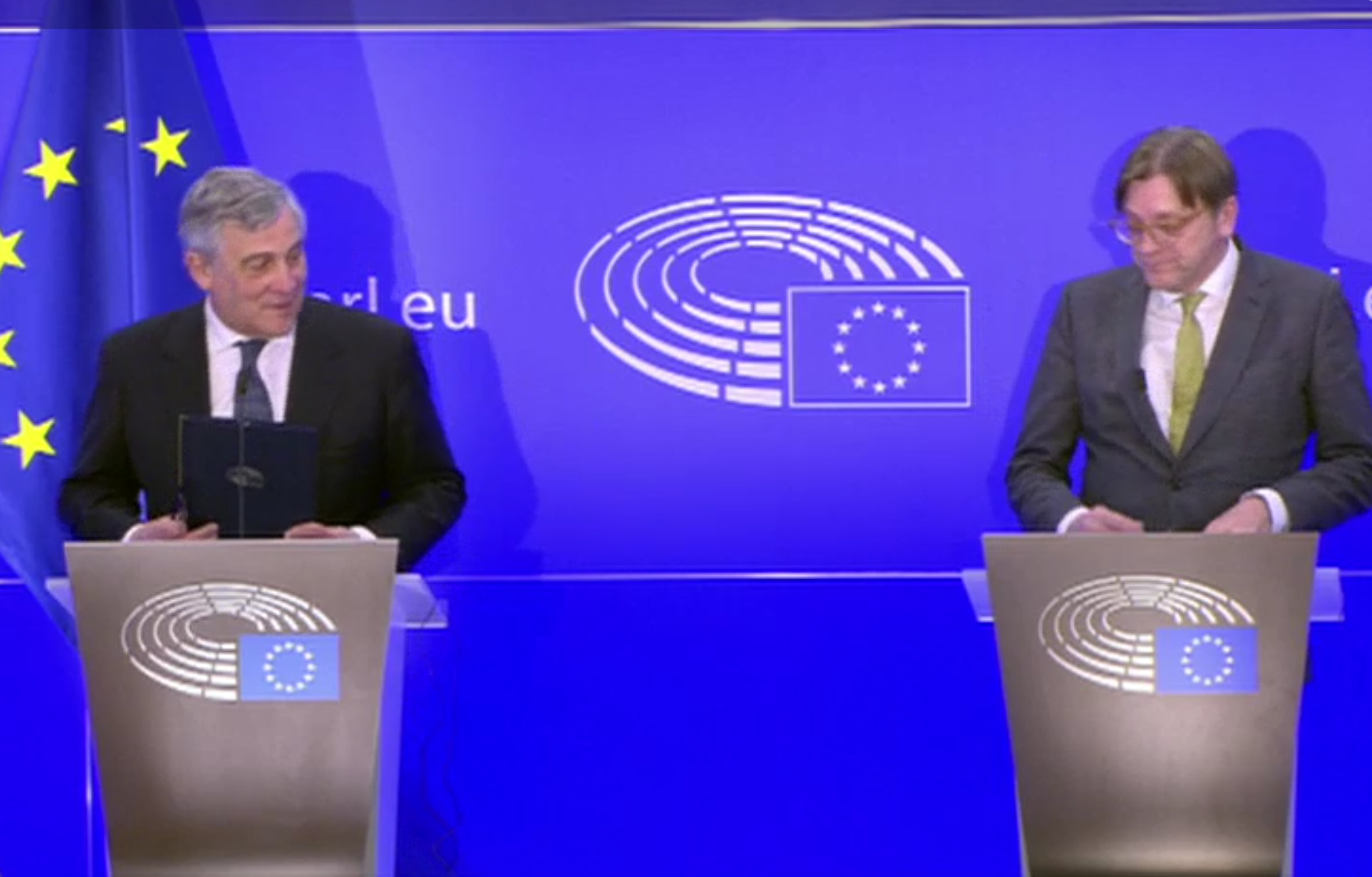Brexit: European Parliament threatens to veto deal over Theresa May ‘discrimination’ of EU citizens
'Parliament will not accept discrimination against European Citizens who arrive during the transition' says president
Your support helps us to tell the story
From reproductive rights to climate change to Big Tech, The Independent is on the ground when the story is developing. Whether it's investigating the financials of Elon Musk's pro-Trump PAC or producing our latest documentary, 'The A Word', which shines a light on the American women fighting for reproductive rights, we know how important it is to parse out the facts from the messaging.
At such a critical moment in US history, we need reporters on the ground. Your donation allows us to keep sending journalists to speak to both sides of the story.
The Independent is trusted by Americans across the entire political spectrum. And unlike many other quality news outlets, we choose not to lock Americans out of our reporting and analysis with paywalls. We believe quality journalism should be available to everyone, paid for by those who can afford it.
Your support makes all the difference.The leadership of the European Parliament has said it will not accept “discrimination” against EU citizens who come to Britain during the Brexit transition period by UK immigration authorities.
A motion backed by the leaderships of the main pro-EU political groups warns that the UK must keep freedom of movement in full effect until the end of the Brexit transition period – at least 2021.
The motion will be discussed in the Parliament on Tuesday next week, and then MEPs will vote on it on Wednesday – but it has already been backed by the Conference of Presidents, leaders of the political groups in the parliament.
Brexit coordinator Guy Verhofstadt told reporters on Wednesday that he had invited Home Office civil servants to Brussels so that MEPs could scrutinise the UK’s plans for the post-Brexit immigration system.
Antonio Tajani, the president of the European Parliament said: “Parliament will not accept discrimination against European Citizens who arrive during the transition.
“The 3.5 million living now, but also we want to defend the citizens arriving in the UK during the transition.”
Mr Verhofstadt, who met with civil servants, ministers, and Theresa May in London earlier this week, said: “We look forward to receiving some further clarifications from the British Government regarding citizen's rights, as a number of outstanding issues remain unresolved.
“We do not accept the United Kingdom's negotiating position that maintains discriminations between EU citizens arriving before and after the start of the transition period. I have invited the British Home Office to come to Brussels to present their proposal for a registration system for EU citizens in the UK, in the search for a solution.”
The European Parliament has vote and ultimate veto on the final deal between the EU and the UK, meaning the European Commission, which conducts day-to-day negotiations, has kept in close contact with its leadership.
The motion, published on Wednesday afternoon, also includes proposals for the deals struck between the EU and UK to be embedded in a so-called “association agreement” similar to that signed with Ukraine.

It argues that such a legal approach would provide “a flexible framework allowing for varying degrees of cooperation across a wide variety of policy areas” and would prevent a mess of different agreements from having to be signed, as is the case with Switzerland.
The agreement would cover four areas: trade, foreign policy and security, internal security, and so-called “thematic cooperation”, such as on research.
The row over the extension of full freedom of movement centres around whether EU citizens who come to the UK during the transition will get the same protections as those who are already living in the UK before March 2019 – or whether they will face other legal obstacles.
The UK says the cut-off date should be the date of Brexit, but the EU says full EU law applies to the UK during the transition and that this must include freedom of movement.

Join our commenting forum
Join thought-provoking conversations, follow other Independent readers and see their replies
Comments